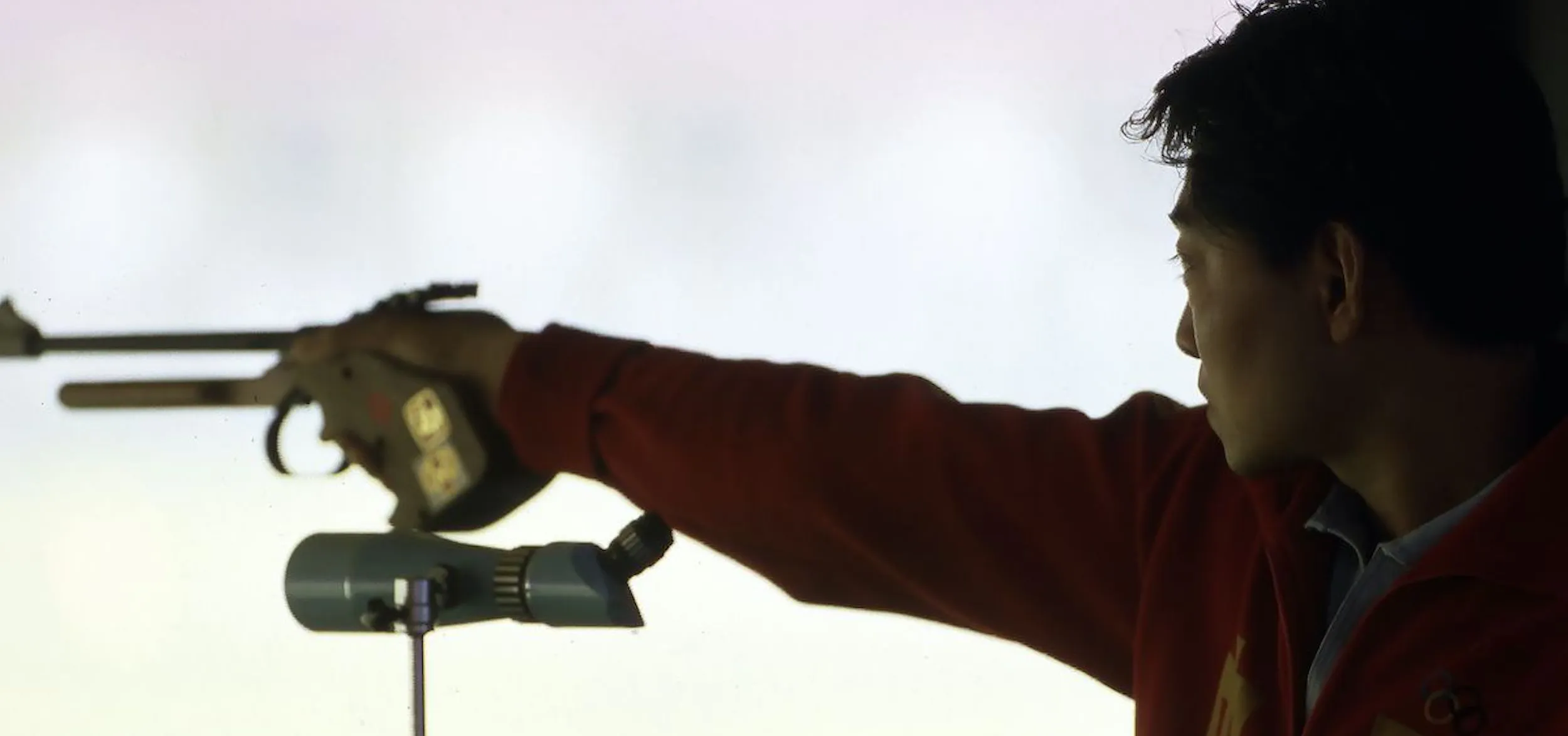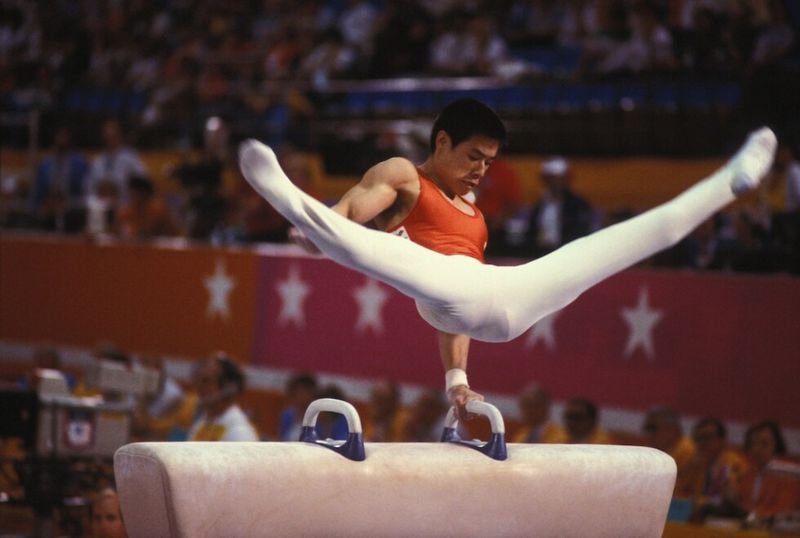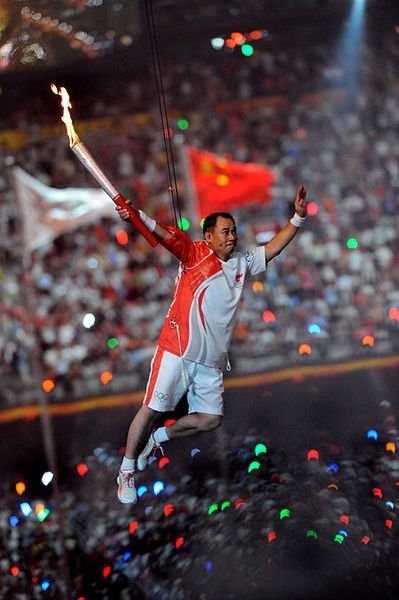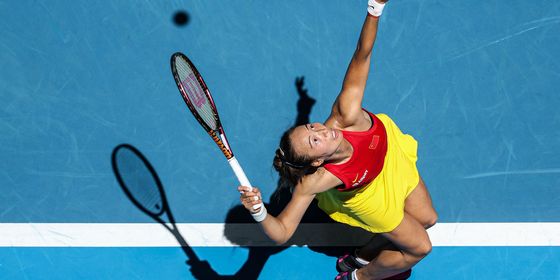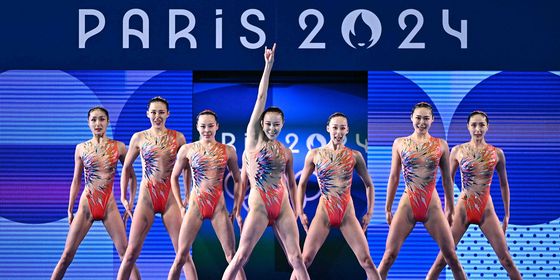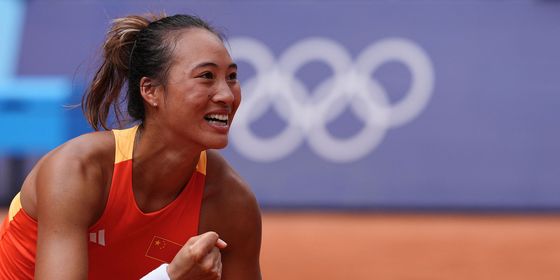In 1984, the PRC defied a Soviet boycott to attend its first Olympics in 32 years
In the heat of the California sun, crowds began to gather around Xu Haifeng (许海峰) as he prepared to take his final few shots in the Olympic 50-meter pistol event. After a deep breath, he fired his trusty gun, and waited for the judges to count the scores.
Just two years before the 1984 Olympic Games in Los Angeles, Xu had been working as a fertilizer salesman in Anhui province. But that summer day, he found himself on top of the podium with a gold medal around his neck—the first PRC athlete to see the the country’s flag raised and hear its national anthem, “March of the Volunteers,” played in an Olympic stadium.
Xu was the first Olympic champion of the 1984 Games, as well as the first representative from China ever to win gold, in what was the PRC’s first appearance at the summer Olympics since 1952. With Xu’s “shots heard around the world” he wrote himself into Olympic lore, and millions of school textbooks. “When I got back [to China] with a gold, I realized how significant it would be, it changed my life ever after,” Xu told Reuters in 2008.
The Beijing Olympic Games in 2008 are regularly referred to as China’s “coming out party,” where the formerly impoverished and closed communist country announced itself as a powerful nation to the world, but the PRC’s Olympic appearance in 1984 was arguably more significant. It ended a hiatus that had begun when the PRC formally withdrew from the International Olympic Committee in 1958 in protest at the continued inclusion of the Republic of China, which controlled Taiwan but claimed authority over all Chinese territory.
China’s road to readmission began in the 1970s as China’s leaders began to court the benefits of greater international recognition. In 1971, the PRC resumed participation in the Asian Games, then made a formal application for recognition from the IOC as the “sole sports organization representing the whole of China” in 1975. The normalization of relations with the US in 1979 paved the way for the PRC to re-emerge on the world stage, and provided the political support for the PRC to re-take its place in the Olympic movement.
Even with growing political recognition, it took the best part of a decade for athletes from the Chinese mainland to finally participate in an Olympic Games. In 1976, the Canadian government caused controversy by abruptly barring the Republic of China from competing under the ROC name and flag at the Montreal Games that year, drawing criticism from the US and others. The ROC delegation refused to participate under those conditions; the PRC, which had still not been recognized by the IOC, also didn’t attend.
Finally, the Nagoya Resolution, passed in 1979 by the IOC, granted the Olympic committee in Beijing the name “Chinese Olympics Committee.” Taiwan would continue its participation in the Games under the name “Chinese Taipei,” and would no longer be permitted to use the ROC flag or anthem.
Having re-entered the Olympic fold in 1979, the Moscow Games in 1980 seemed a logical setting for the PRC to take the field on the soil of a fellow communist state. But relations with the USSR were fraught since the Sino-Soviet Split in 1958, and later the warming of relations between China and the US. The Americans persuaded the PRC to boycott the Games along with over 60 other nations in protest of the Soviet invasion of Afghanistan.
By coincidence, the city that had hosted the first Olympic Games with an athlete representing China ended up hosting China’s Olympics re-emergence. In 1932, Liu Changchun had competed for the Republic of China in the 100 and 200 meters race at the Olympics in LA. In 1952, the fledgling PRC scrambled to get swimmer Wu Chuanyu to the Games in Helsinki. Both Liu and Wu had been the only athletes representing their country at their Games; neither qualified in their events, and both faced obstacles to do with politics as well as planning on their road to the Olympics.
By 1984, however, China was prepared. In defiance of a Soviet-led boycott, the PRC sent 215 competitors in 105 sports to LA. Though Chinese officials played down their hopes of success prior to the Games, the country finished a remarkable fourth in the medals table, with 15 golds. Ignoring the boycott not only improved the PRC’s medal opportunities, but also helped ingratiate the country with its American hosts, even earning it praise for “saving” the Olympics.
With China’s first gold, Xu became an instant hero, but also impressive were the feats of Li Ning (李宁), nicknamed “the Prince of Gymnastics.”
Li won six medals in total at the 1984 Games, including three golds, wowing the crowds with his feats on the floor, pommel horse, and rings. After retirement, he established an eponymous sportswear brand which has made him billions. He was named China’s “male athlete of the century” in 2000, and took the star part in the opening ceremony of the 2008 Olympics in Beijing, running around the National Stadium in mid-air suspended by wires before lighting the Olympic cauldron.
The slogan for the Chinese team in 1984 was “Break out of Asia and advance in the world.” It had taken 32 years, but with one shot and some outstanding gymnastics, the PRC had finally arrived.





